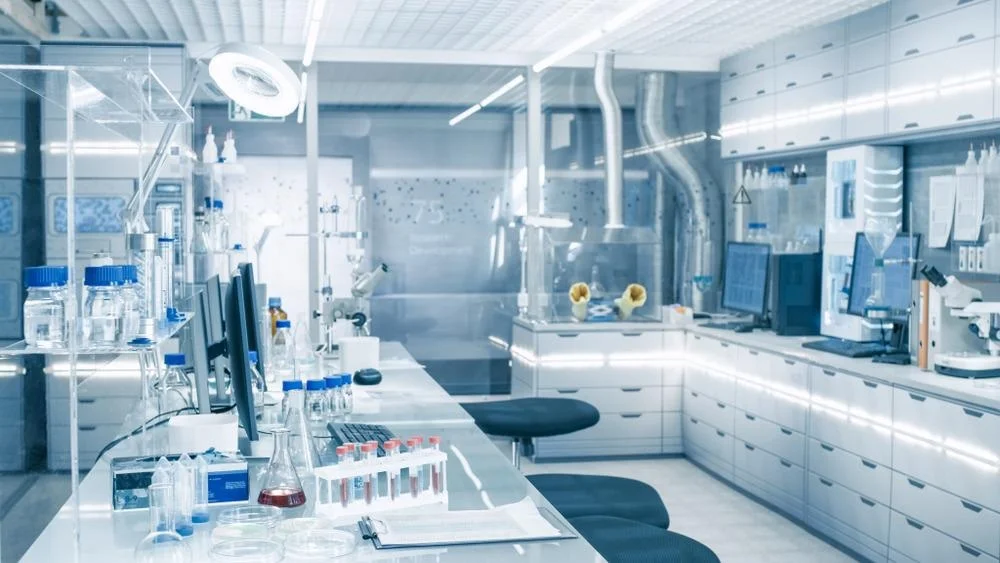Fuel Cell Membrane Organic Compound Testing
When it comes to fuel cell membrane testing, ensuring that organic compounds meet stringent quality and performance standards is paramount. This service focuses on identifying and quantifying the presence of organic compounds within fuel cell membranes—a critical component for enhancing the efficiency and longevity of fuel cells in various applications.
Fuel cells are essential energy conversion devices that generate electricity through a chemical reaction involving hydrogen and oxygen, producing water as byproduct with no harmful emissions. The membrane is one of the most crucial parts of this process because it separates the anode from the cathode, ensuring the integrity and stability of the cell.
The testing of fuel cell membranes for organic compounds involves several steps to ensure that they meet the required specifications. This includes thorough preparation of the sample, application of appropriate analytical techniques, and stringent quality control measures. The primary goal is not only to identify known contaminants but also to detect potential new ones that could impact performance.
Organic compounds in fuel cell membranes can come from various sources, including manufacturing processes, degradation over time, or external contamination during use. Identifying these compounds early helps manufacturers and users mitigate risks associated with their presence. Common organic compounds tested include hydrocarbons, alcohols, ketones, esters, ethers, and others depending on the specific membrane type.
For accurate analysis, samples must be prepared correctly following standard protocols outlined in international standards such as ISO/IEC 17025. After preparation, they undergo one or more analytical methods tailored to detect the desired compounds. These might include gas chromatography (GC), high-performance liquid chromatography (HPLC), Fourier transform infrared spectroscopy (FTIR), nuclear magnetic resonance (NMR) spectroscopy, and mass spectrometry.
The results from these tests provide detailed information about the composition of the membrane materials. This data is then used by quality managers and R&D engineers to make informed decisions regarding improvements or adjustments needed in production processes or design modifications for better performance.
Understanding how different organic compounds affect fuel cell membranes allows us to develop more robust designs capable of withstanding harsh operating conditions while maintaining high efficiency levels. By continuously monitoring these parameters, we can help ensure that fuel cells remain competitive and reliable solutions for future energy needs.
- Environmental Impact: Ensuring the purity of fuel cell membranes reduces waste generation during operation and extends the lifespan of these devices, leading to lower overall environmental impact.
- Sustainability: Minimizing contamination helps maintain optimal performance which translates into higher energy conversion efficiencies contributing positively towards sustainable development goals.
Benefits
The benefits of this comprehensive testing approach extend beyond mere compliance; it provides valuable insights into the operational characteristics and potential hazards associated with fuel cell membranes. For quality managers, having reliable data on the purity of components ensures consistent product quality across all batches.
Compliance officers gain peace of mind knowing their products meet strict regulatory requirements without compromising safety or efficacy standards. R&D engineers benefit from this service by gaining deeper understanding into material behavior under various conditions which can lead to innovative breakthroughs in technology advancement.
For procurement teams, accurate test results help select suppliers who adhere strictly to quality benchmarks thus reducing risk factors related to supply chain disruptions or poor product performance.
Eurolab Advantages
At Eurolab, our commitment to excellence ensures that every aspect of this testing process is carried out meticulously. Our state-of-the-art laboratory facilities equipped with advanced analytical instruments guarantee precise and accurate results.
We employ highly trained professionals who adhere strictly to recognized international standards ensuring consistency in methodology across all tests performed here. This approach not only enhances credibility but also fosters trust among clients worldwide.
Our robust quality management system is certified under ISO/IEC 17025, providing assurance that our operations meet the highest industry standards. With years of experience and expertise in this field, Eurolab stands out as a leader in delivering reliable and timely results for fuel cell membrane organic compound testing.
Environmental and Sustainability Contributions
- Reduced Waste: By ensuring that fuel cells operate optimally, we minimize waste generated during their lifecycle which ultimately contributes to a cleaner environment.
- Energy Efficiency: Cleaner membranes lead to better energy conversion efficiency helping reduce carbon footprints associated with energy production processes.





